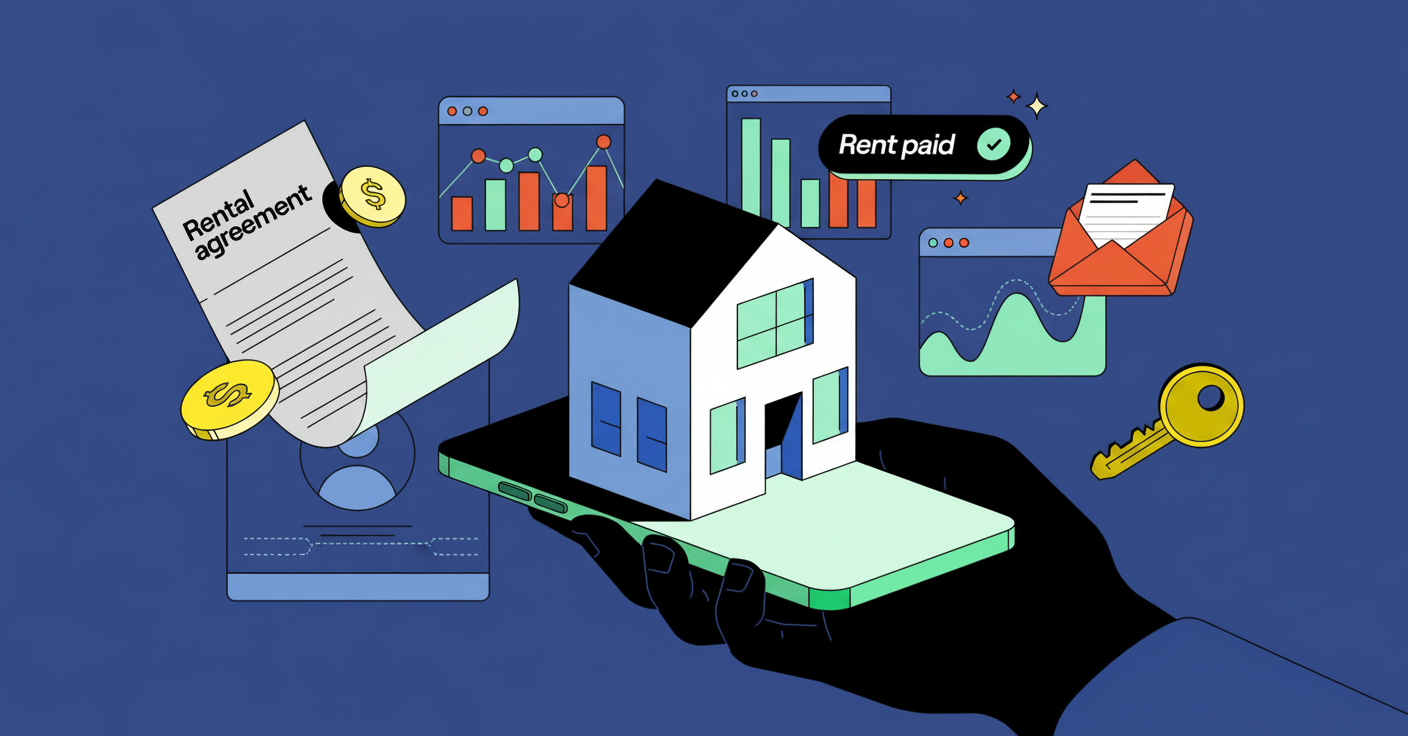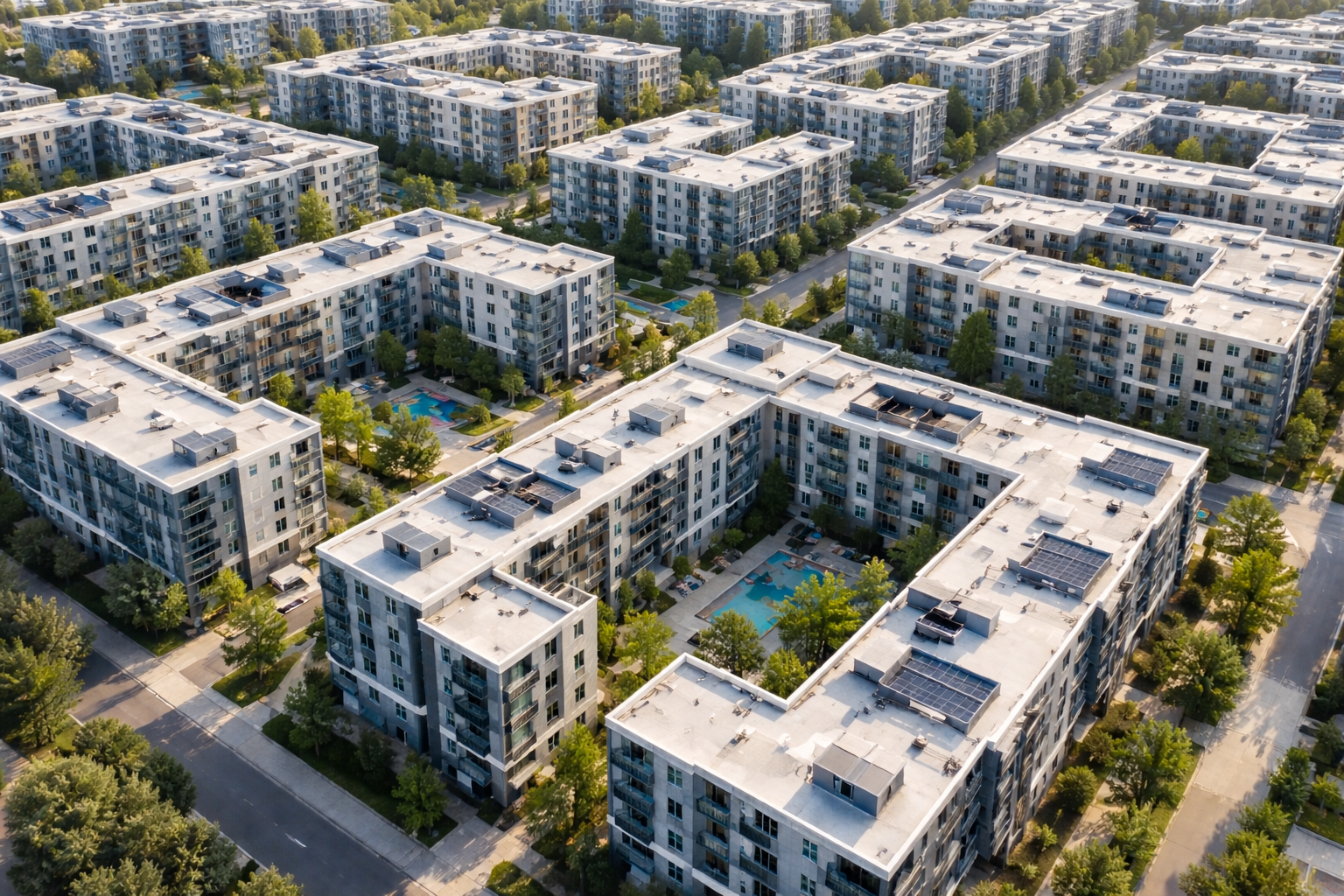Property Management
Apartment website marketing tends to focus locally to drive more business. Specifically, the goal is to rent apartments in a particular community, neighborhood, or city. However, many property managers and owners do not know where to begin.
Real estate marketing has become very competitive, and increasing online visibility is essential. Four out of five renters use the Internet to find apartments. Online search engines are today’s Yellow Pages. Therefore, to attract people's interest in your apartments, you need to first be visible on search engines such as Google, Bing, and Yahoo.
SEO is the most effective way to increase web traffic. With a strong SEO strategy in place, you will become more visible to your target audience and help your apartment website rank higher in search results.
1. Create Targeted Keywords to Drive More Traffic
Choosing the right keywords is crucial when optimizing your apartment website for search engines. Relevant keywords on your website allow the search engine to match the words searched by the user.
Search Engine Process
First, let us try and understand how a search leads a customer to your apartment website. Google categorizes user searches into three categories: do, know, and go.
- Do: A person decides to rent an apartment in Miami
- Know: Apartment rental prices in Miami
- Go: Apartment website
In the do phase, the user intends to rent an apartment. In the know situation, the user wants to learn more. Finally, the go action sends the user to your apartment website. Finding your apartment online becomes so much easier by using the right keywords.
Pick the Right Keywords
Before implementing keywords into your web pages, consider what you are trying to sell. Do the research and choose the most relevant keywords to describe your apartment. For example, when trying to sell expensive apartments, a good keyword would be luxury apartments.
Next, think of your apartment website’s top keywords and selling points. Find other keywords you want to include, such as “rental listing” and “apartments for rent.” Keep the keywords short, usually one to three words.
Long-tail Keywords
A long-tail keyword is a phrase of four or more words typed into a search engine. When people are looking for something specific, they use these phrases. For example, a person may search for high-rise luxury condo apartments.
Create SEO-friendly Web Pages
After selecting the right keywords, integrate them naturally into your website’s content. Make sure your website has a good content structure, as this makes it easy to index. Additionally, create keyword-rich titles and headings on your web pages.
2. Use Online SEO Tools to Find the Right Keywords
With the right tools, you can simplify and streamline your SEO process. SEO tools help you find the right trigger keywords and provide the data you need. Moreover, these tools offer real-time insights.
Best Free SEO Tools
Google Ads Keyword Planner is among the best free SEO tools. This tool will help you find keywords most relevant to your apartment building. Plus, you can check the popularity of keywords and review their search trends.
Another option is Ubersuggest’s free keyword planner. Start by typing in the keyword you want to target. The tool will show you the ranking and search score for each keyword. It also suggests other keywords to use.
Top Paid SEO Tool
What sets Semrush apart is its ability to make suggestions based on content. For example, Semrush can provide keyword suggestions to write blog posts. These preselected keywords typically rank high in search results.
Semrush can also predict how keywords rank in search queries. It suggests websites that may be of interest for generating backlinks. Furthermore, Semrush can run an SEO audit on your website to determine what technical changes would boost your search rankings.
3. Optimize Images and Video for Search Engines
Adding photos and videos to your apartment website will engage visitors. Most importantly, the more traffic your website gets, the more likely it will rank higher on search engines.
Publishing SEO content with unique, optimized images will increase website traffic. Follow these guidelines for SEO best practices:
- Quality content: Create custom graphics to make your pages unique. This will help you stand out from the cookie-cutter websites users click on before landing on yours.
- File size: Web pages can take longer to load if they contain large images. Optimize media file sizes for faster loading and a better user experience.
- Alt tags: Unlike humans, search crawlers cannot see images. Use the right words to describe the image with a caption/alt text.
4. Build Your Apartment Website with a Responsive Design
Responsive web pages display beautifully across various devices and screen sizes. Whether you are on a smartphone or a laptop, the user experience should remain the same.
User experience plays a crucial role in improving your search engine ranking. According to Google, 61% of mobile users will not return to a website that is not mobile-friendly. Adopting a responsive design helps improve SEO and makes good business sense.
5. Start Blogging to Improve Rankings
Choose a secondary source in addition to the basic content on your apartment website. Blogs, videos, infographics, and e-books are valuable tools for educating your target audience.
Here is what you can do to optimize your blog content for search engines:
- Decide who you want to reach: Know your audience and what they are looking for before planning your blog strategy.
- Select the right keywords: Strategically embed keywords in your blog posts. Pick relevant words such as home, loft, comfort living, etc.
- Create descriptive titles: A user searching on Google is more likely to find and visit your blog if it has a good title, such as “Tips and Tricks for Negotiating and Renewing Your Lease.”
SEO success depends on answering a user's questions in the search engine. By blogging regularly, you can position your apartment website as a relevant source of answers.
6. Utilize an Off-Page SEO Strategy for Apartments
Off-page SEO describes the activities performed outside your website that affect your ranking on search engines. Off-page SEO relies heavily on building backlinks.
The more websites that link to yours, the higher your ranking will be. These are some examples of off-page SEO:
- Marketing on social media
- Make other people share your content
- Brand mentions
- Search for influencers to write about you
7. Be Focused on Local SEO
NAP is an acronym for name, address, and phone number. To improve local SEO, ensure your business information is accurate across the internet. Include your NAP on apartment listing websites like Apartments.com.
Additionally, ensure your business information is in local directories such as Yelp, Pinterest, and Foursquare. Making your presence known on the internet can attract more attention and leads.
Conclusion
An apartment’s digital marketing strategy must include SEO. Many renters use search engines to locate apartments, so smart SEO is necessary for any apartment website. We hope these SEO tips can help get you started.
ExactEstate can change the way you manage your property and do business. Contact us today to schedule a custom demo.










